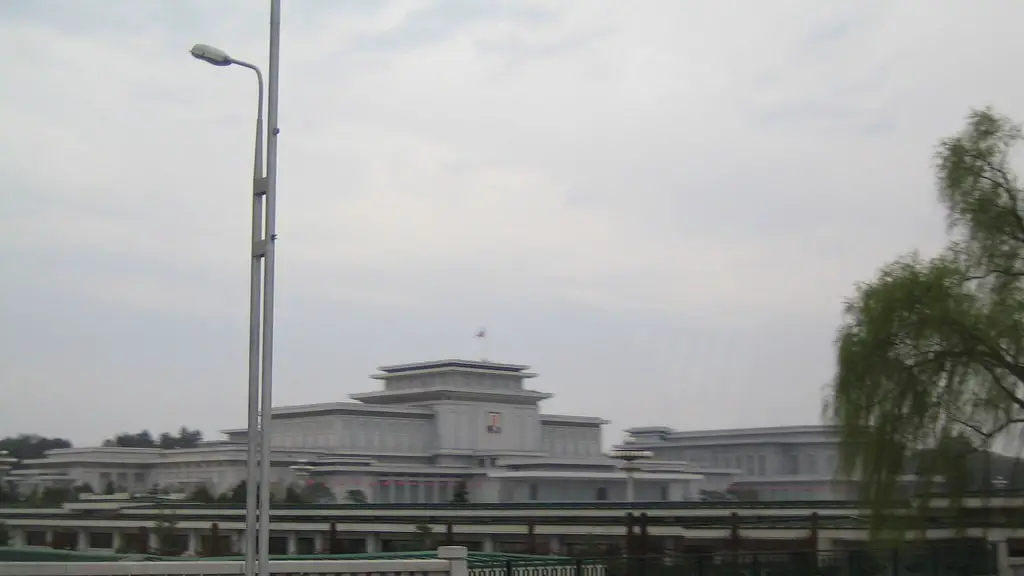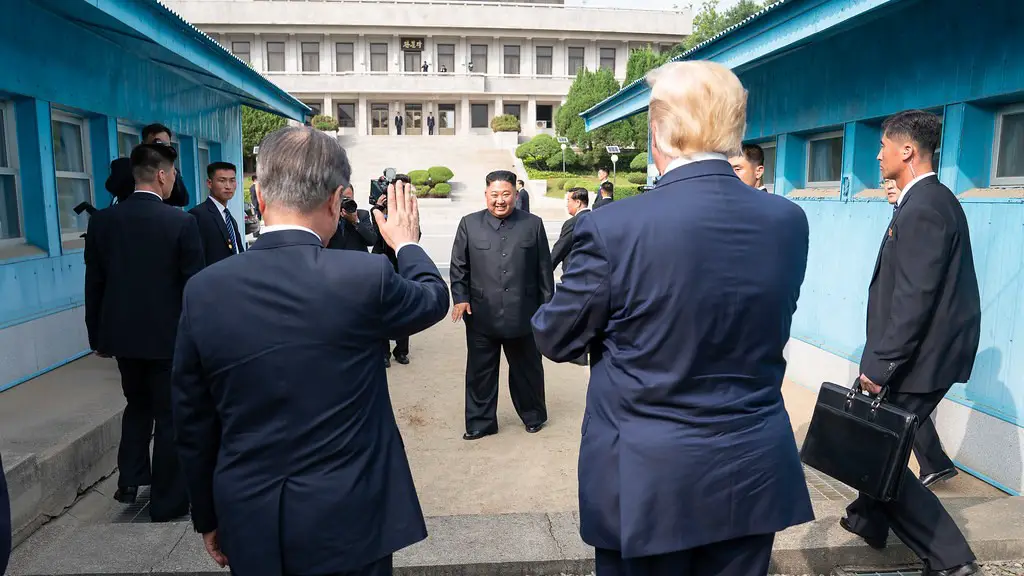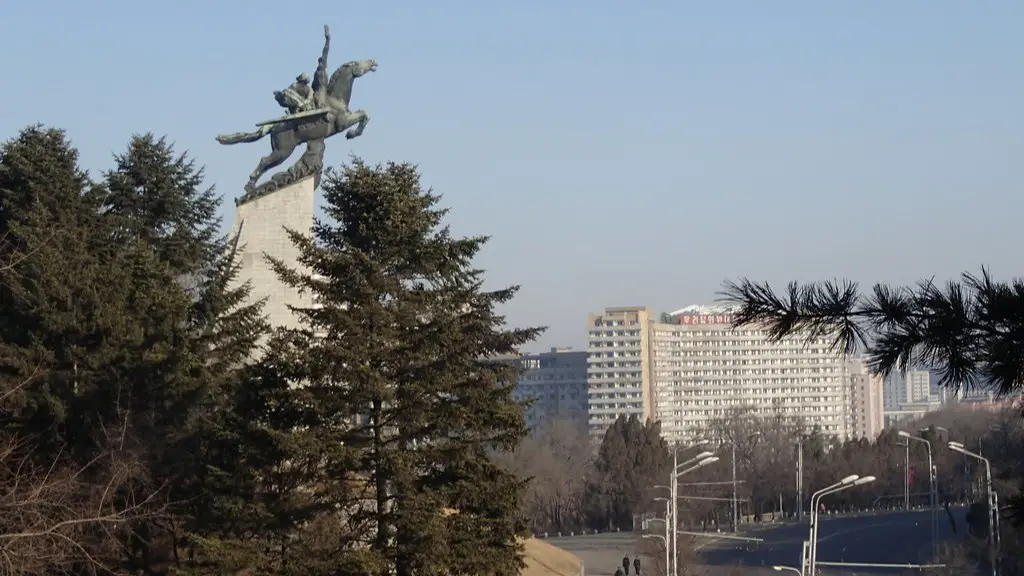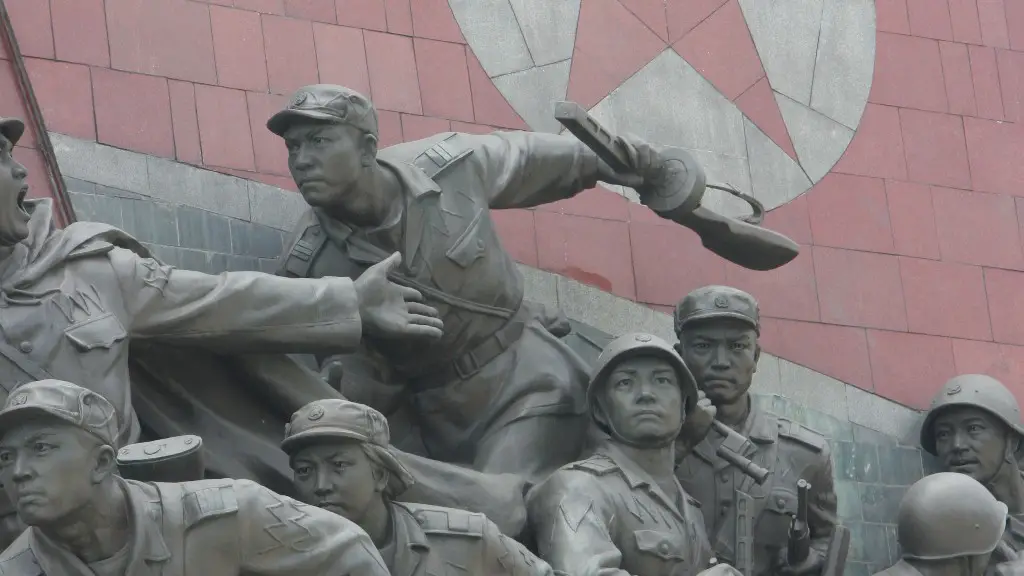Will North Korea fire missiles? It’s a question on the minds of many as tensions rise between the United States and North Korea. Since taking office, President Donald Trump has been vocal on the issue, making it a priority of his term in office.
In the past year alone, North Korea has launched over twenty ballistic missiles, including two intercontinental ballistic missiles capable of potentially reaching the US. It’s estimated that North Korea now has around sixty nuclear weapons.
The Pentagon and other US agencies have been monitoring the situation closely. In response, the US has imposed a series of sanctions on North Korea, including a travel ban, asset freeze and restrictions on the sale and transfer of weapons.
In addition, the US has set red lines in the event of an attack. Should North Korea conduct any nuclear test or launch any ballistic missile, the US has stated that it will respond with “overwhelming force”.
Experts say that the chances of an attack by North Korea are very low. They believe that North Korea’s leader, Kim Jong-un, has no interest in starting a war and is instead using the missile launches as a negotiating tactic.
International diplomats have stressed the need for dialog between the US and North Korea. China, North Korea’s closest ally, has been instrumental in facilitating talks and has been pressing for denuclearization of the Korean peninsula.
The future of North Korea, as well as its relationship with the US and its neighbors, remains a subject of intense speculation. Analysts point to the unpredictability and volatility of North Korean politics as cause for caution.
Consequences of Nuclear War
While the odds of an attack may be slim, the consequences of a nuclear attack are enormous. Apart from the potential for millions of casualties, the threat of a nuclear war has the potential to devastate the entire planet.
Experts warn of the potential of nuclear winter, a phenomenon in which the smoke and dust particles generated by a nuclear explosion would block sunlight and bring temperatures across the world to below freezing. The resulting famine and disruption of food production could cause a global famine that could last for years.
Not to mention the economic toll, with many companies in both South Korea and the US holding significant investments in the region, including technology, transportation and manufacturing. These investments would certainly be at risk in the event of a nuclear war.
Furthermore, the risk of radioactive fallout, air and water contamination and other environmental damage from a nuclear war would be devastating.
Global Implications
The implications of a nuclear war would not be limited to just North Korea, the US and South Korea. It is likely that other nations in the region would be affected as well.
Japan, for example, is within range of North Korea’s ballistic missiles and would be at risk if a war were to break out. The country has also discussed the possibility of a nuclear attack and has recently conducted a series of drills to prepare for such a scenario.
Further afield, countries as distant as India, China and Europe could very well be affected. Even countries not directly in the path of a missile could suffer drastic consequences, with global markets and economies inevitably taking a hit in the event of a war.
In the event of a nuclear war, world leaders have warned that it could take years to recover from the devastation, and result in a global economic crisis.
Preventive Measures
Fortunately, there are still measures that can be taken to prevent such an event from occurring. International organizations such as the United Nations and the International Atomic Energy Agency are pushing for a diplomatic solution, with China and Russia playing an important role in negotiations.
For its part, the US government is committed to finding a peaceful resolution and has committed to working with North Korea diplomatically.
The US has also deployed its military assets to the region, including a convoy of warships, in order to show a visible presence and provide a deterrent. The US has stressed that it is willing to use military force should North Korea continue with its provocations.
At the same time, the US has also begun talks with South Korea, Japan and other countries in the region to coordinate a unified response and set up a framework for a potential diplomatic solution to the crisis.
US-North Korea Relations
The future of US relations with North Korea is still uncertain. While North Korea has vocally threatened war, it is clear that the country’s leader, Kim Jong-un, is looking to establish a stronger diplomatic relationship with the US.
Nevertheless, the US has remained firm on its stance that it will not tolerate provocation, and that its commitment to the safety of the US and its allies is unwavering.
At the same time, the US also recognizes that any future resolution will require negotiations and dialogue, and is willing to work with North Korea to come to a peaceful resolution.
As the world continues to closely monitor the situation in North Korea, it is clear that the potential for a nuclear war is still a very real possibility. Thankfully, there are still measures that the international community can take to prevent such a disaster from occurring.
International Sanctions
The United Nations has imposed a number of sanctions on North Korea in an effort to pressure the country to denuclearize. These sanctions have included bans on weapons, investments and international travel as well as restrictions on the import and export of certain goods.
Although some argue that the sanctions may be having an effect, others point to the fact that North Korea has still managed to develop and test advanced weapons systems despite the restrictions. This suggests that the sanctions alone may not be enough to prevent a nuclear war.
Still, the international community is committed to finding a diplomatic solution and has taken steps to ensure that North Korea’s weapons programs do not get out of control.
The Future of North Korea
It is clear that the current situation between the US and North Korea is a precarious one. As it stands, the US has red lines and is prepared to use military force should North Korea cross them. At the same time, North Korea is continuing to develop increasingly advanced weapons systems.
Experts agree that the most likely scenario is still a diplomatic solution. The US and North Korea have already made small steps towards this goal, including working-level talks and an exchange of letters between President Trump and Kim Jong-un.
For now, the best case scenario is still one of a diplomatic resolution and a peaceful future for North Korea and the world at large.





